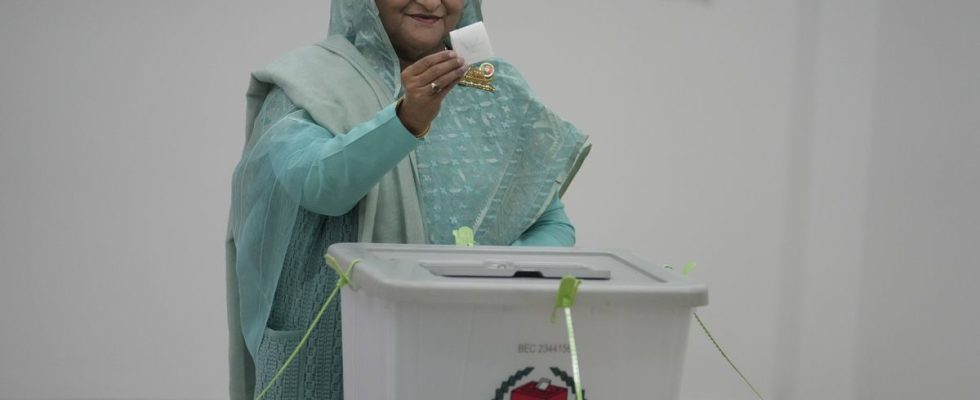For the opposition, the scenario was written in advance. Bangladesh Prime Minister Sheikh Hasina won Sunday’s legislative elections, paving the way for a fifth term.
While Sheikh Hasina, in power since 2009, is credited with fostering meteoric growth in the world’s eighth most populous country, her government is accused of serious human rights violations and a ruthless crackdown on the opposition. . The ruling Awami League party won about three-quarters of the seats in the unicameral parliament, according to election commission officials. The results will be officially announced this Monday.
The opposition denounces “a sham election”
After voting in Dhaka, Sheikh Hasina, 76, called on voters to go to the polls, promising “free and fair” elections. She also denounced the boycott of the vote by the main opposition party, the Bangladesh Nationalist Party (BNP), which she described as a “terrorist organization”. The BNP, for its part, denounced “a sham election”. The vote was also boycotted by other parties.
The Awami League had virtually no opponents in the constituencies it contested. But it had failed to present candidates in a few others, apparently to avoid Parliament being seen as the instrument of a single party. The head of the national electoral commission, Habibul Awal, estimated participation during the day at around 40%. Many Bangladeshis interviewed said they did not vote because the outcome was a foregone conclusion.
Opposition decimated by arrests
The leader of the BNP, Tarique Rahman, for his part denounced possible ballot stuffing. “What took place is not an election, but rather a shame for the democratic aspirations of Bangladesh,” he said on social networks from London, where he has lived in exile since 2008. Some voters say they have were threatened with confiscation of their government benefit cards, necessary to obtain social benefits, if they refused to vote for the Awami League.
The BNP and other parties protested unsuccessfully for months in late 2023 to demand the resignation of the prime minister and a neutral caretaker government to oversee the elections. Some 25,000 opposition leaders, including all local BNP leaders, were arrested after these demonstrations, during which several people were killed in clashes with the police, according to the party. The government, for its part, reported 11,000 arrests.
Nearly 700,000 police officers and reservists were deployed to maintain order during the vote, and nearly 100,000 soldiers, according to the electoral commission.

